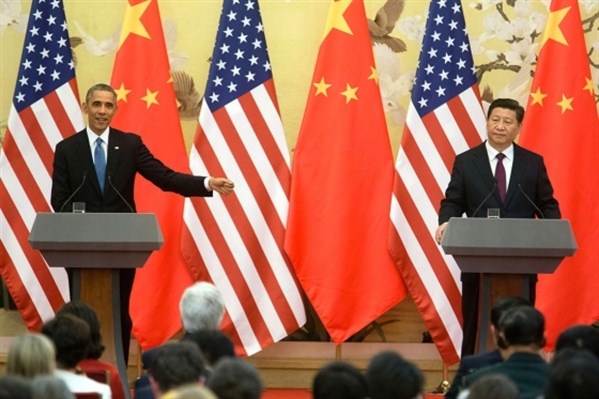Whenever a U.S. president’s party experiences major losses during a midterm congressional election, there is always pressure to fire members of his team. In this particular cycle, pundits have urged President Barack Obama to consider replacing his national security adviser, Susan Rice, and Secretary of Defense Chuck Hagel, among others, as part of an effort to change course and find a new direction for his last two years in office. But staffing questions do not lie at the heart of the Obama administration’s problems. Rather, the administration has fallen short in its ability to define U.S. strategic priorities and to push through the policies needed to implement them.
Take the recent rapid and noticeable decline in global energy prices. Saudi Arabia, instead of cutting back on production in order to absorb the current glut of oil on the market, has sustained its production, apparently at the request of the United States. This amounts to a stealth attack on the energy revenues of states like Russia, Iran and Venezuela, which face severe strains on their budgets if the current price dip becomes a long-term trend. Certainly, U.S. consumers also benefit from lower gasoline bills and the savings on the prices of consumer goods that results from lower energy costs.
Yet the short-term benefits from lower energy prices mask a longer-term strategic conundrum. For the past several years, high energy prices have made the cost of developing and exploiting North America’s massive reserves of unconventional hydrocarbons worth bearing. In turn, the growth of America’s indigenous energy industries has been an important component of an otherwise lackluster economic recovery. The Saudis may be happy to drive world prices lower, particularly as a way to punish the Russians for their continued support for the regime of Syrian President Bashar al-Assad and their assistance to Riyadh’s regional rival Iran. But they are also aware that sustained low prices will be the death knell of much of the new energy being produced in the U.S.

